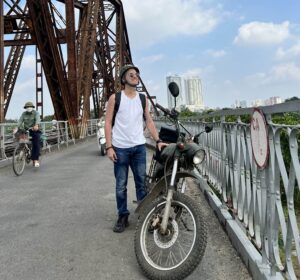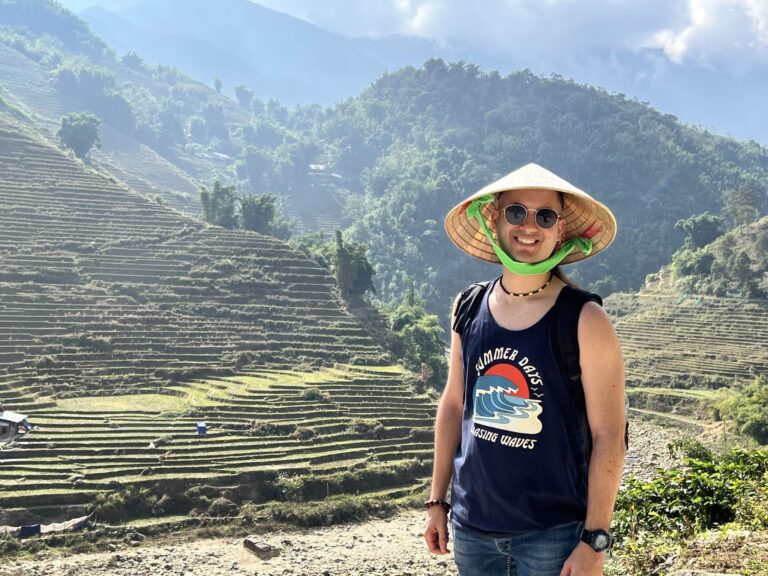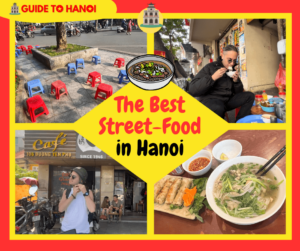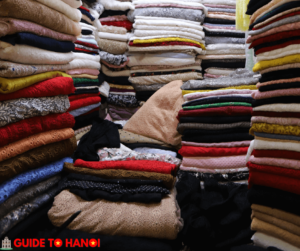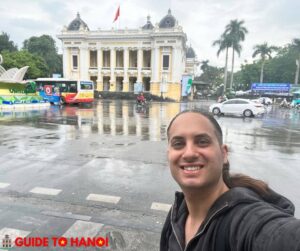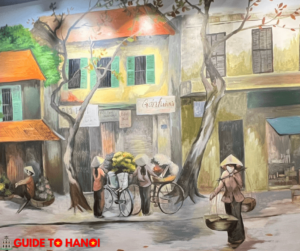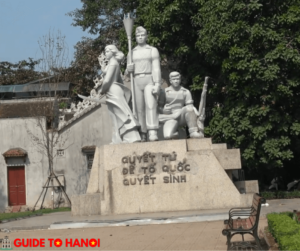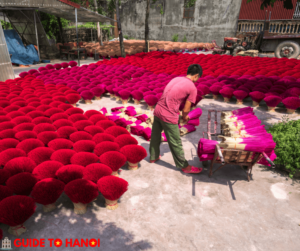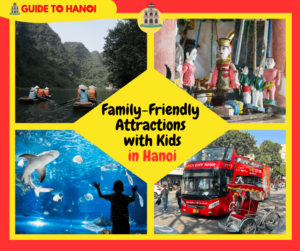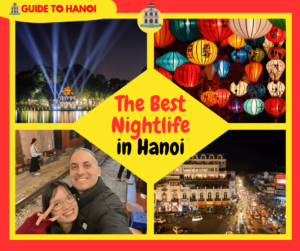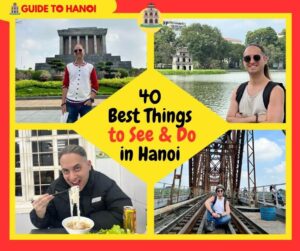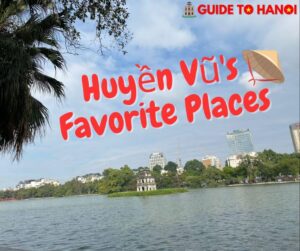Welcome to the comprehensive guide on Safety & Personal Security in Hanoi, Vietnam.
Hanoi, the vibrant capital of Vietnam, is a city that seamlessly blends a rich cultural heritage with a bustling modern atmosphere.
As you explore its charming streets, ancient temples, and bustling markets, you must prioritize your safety and personal security to ensure a memorable and trouble-free visit.
In this guide, we’ll provide valuable insights and tips to help you navigate Hanoi confidently, from understanding the local safety landscape to practical advice for a secure and enjoyable experience in this captivating city.
Whether you’re a first-time or a returning visitor, our guide will help you make the most of your time in Hanoi while keeping safety at the forefront of your journey.
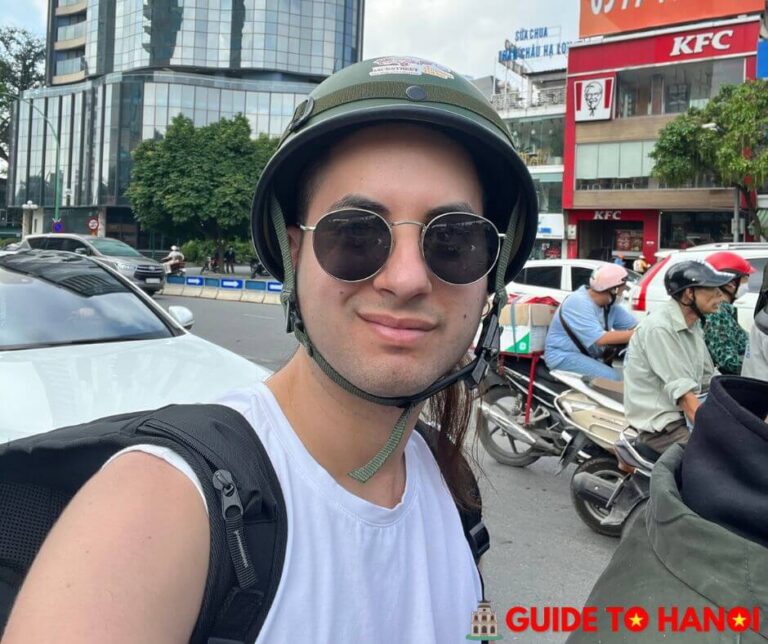
Safety and personal security in Hanoi, Vietnam, is generally good, but it’s essential to exercise caution and be aware of potential issues. Here are some key points to consider:
Crime
Hanoi is relatively safe compared to many other major cities, but petty crime can still occur. Pickpocketing and bag-snatching are the most common types of crimes targeting tourists.
It’s advisable to keep a close eye on your belongings, especially in crowded markets and tourist areas.
Avoid displaying expensive jewelry or electronics in public.
Scams
Like in many tourist destinations, there are scams to be aware of in Hanoi.
Be cautious of over-friendly strangers who may invite you for a drink or to a shop where they pressure you to buy items at inflated prices.
Only use reputable tour agencies for booking tours, and ensure that prices and details are transparent before committing.
Read all the scams in this guide.
Traffic
Hanoi is notorious for its chaotic traffic, with many motorbikes and a lack of adherence to traffic rules.
Be extremely cautious when crossing the street.
It’s best to do so at designated crosswalks and follow the locals’ lead.
Avoid renting motorbikes unless you are an experienced rider, as traffic can be overwhelming.
Food and Water Safety
Street food is a big part of the Hanoi experience, but be mindful of where you eat.
Look for busy stalls with high turnover, indicating food quality and freshness.
Also, drink bottled water and avoid ice in drinks if you have concerns about water quality.
Healthcare
Ensure you have travel insurance that covers any potential health issues.
While there are good healthcare facilities in Hanoi, language barriers can be problematic.
Insurance and knowing the location of reputable hospitals or clinics is a reasonable precaution.
Political and Cultural Sensitivity
Be respectful of local customs and traditions.
Do not engage in political activities, as Vietnam has strict laws.
Dress modestly when visiting temples or other religious sites.
Natural Disasters
Hanoi is prone to flooding during the rainy season, typically from May to October.
Be aware of weather forecasts and follow local advice in case of heavy rain or flooding.
Travel Advisories
Before your trip, check with your government’s travel advisory for the latest information on safety and security in Vietnam.
These advisories can provide valuable insights and warnings for travelers.
In summary, while Hanoi is a relatively safe destination for travelers, it’s vital to exercise common-sense precautions to ensure your safety and personal security.
Stay vigilant, be aware of your surroundings, and respect the local culture and laws to have a positive and enjoyable experience in the city.
Did you know? The undetonated explosives in Vietnam
Vietnam is still dealing with the legacy of unexploded ordnance (UXO) left over from the Vietnam War, which ended in 1975.
During the war, Vietnam experienced intense bombing campaigns, particularly in the northern and central regions of the country.
This has left behind a significant number of undetonated explosives, including bombs, mines, and other munitions.
Extent of the Problem
The extent of the UXO problem in Vietnam is substantial. It’s estimated that millions of tons of bombs were dropped during the conflict, and a significant portion of these did not detonate upon impact.
As a result, these explosives remain buried in the ground or hidden in remote areas, posing a continuing danger to the population.
Impact on Local Communities
UXO contamination has had a severe impact on many communities in Vietnam.
People, particularly in rural areas, are at risk of accidental explosions while farming, digging, or building.
Many people have been injured or killed as a result of unintentional contact with UXO.
Clearance Efforts
The Vietnamese government and international organizations have been working to clear UXO from affected areas.
This involves teams of experts who locate and safely detonate or remove the explosives.
While progress has been made, the scale of the problem means that clearance efforts are ongoing and may take many years to complete.
Awareness and Education
Public awareness campaigns have been implemented to educate people, especially in rural areas, about the risks of UXO and what to do if they encounter suspicious objects.
These campaigns aim to reduce accidents by encouraging safe practices and reporting potential UXO finds to the authorities.
Tourist Areas
Some areas that experienced heavy bombing during the war have become popular tourist destinations, like the Cu Chi Tunnels near Ho Chi Minh City.
Tourist sites like these have been cleared of UXO to ensure visitor safety.
Travelers must be aware of the potential risks associated with unexploded ordnance when visiting certain areas of Vietnam, particularly in rural and less developed regions.
Pay attention to warning signs and local guidance, and avoid venturing off well-trodden paths in areas where UXO clearance has not been completed.
If you encounter any suspicious objects that you suspect might be unexploded ordnance, do not touch or disturb them and report their location to local authorities.
Overall, while Vietnam has made progress in addressing the issue of undetonated explosives, it remains a serious concern in some areas of the country, and caution should be exercised when exploring these regions.
The Police in Hanoi
The police in Hanoi, like in many other cities, are responsible for maintaining law and order, ensuring public safety, and enforcing the law.
They play a vital role in providing security and assistance to residents and visitors.
The Hanoi police force is a branch of the Ministry of Public Security responsible for various law enforcement duties, including traffic control, crime prevention, and emergency response.
Tourists should feel free to approach them if they need assistance or in an emergency.
I recommend going with a Vietnamese speaker if language is an issue.
The police can help with lost or stolen property, accidents, and other emergencies.
It’s advisable to carry identification and travel documents when exploring the city, as random identity checks can occur.
Additionally, while the police force can provide valuable assistance, it’s essential to be aware of the local laws and customs to ensure a positive interaction.
| Aspect | Concerns | Tips |
|---|---|---|
| Crime | Petty crime, pickpocketing, and bag snatching. | Keep a close eye on belongings, and avoid displaying valuables in public. |
| Scams | Over-friendly strangers, inflated prices. | Use reputable tour agencies to ensure transparent pricing. |
| Traffic | Chaotic traffic, lack of adherence to rules. | Cross streets at designated crosswalks, and avoid renting motorbikes unless experienced. |
| Food and Water Safety | Street food, water quality. | Choose busy stalls, drink bottled water, and avoid ice if concerned about water quality. |
| Healthcare | Language barriers, health insurance. | Have travel insurance and know reputable healthcare facilities’ locations. |
| Political and Cultural Sensitivity | Local customs and political activities. | Respect local traditions, avoid political involvement, and dress modestly at religious sites. |
| Natural Disasters | Flooding during the rainy season. | Stay aware of weather forecasts and follow local advice during heavy rain or flooding. |
| Travel Advisories | Government travel advisories. | Check your government’s travel advisory before your trip for insights and warnings. |
FAQs
Here are some frequently asked questions and answers to help you plan your trip to Hanoi.
How safe is Hanoi for a tourist?
Hanoi is generally safe for tourists, but be cautious of petty crime and follow common-sense safety guidelines.
Is it safe to walk in Hanoi at night?
Walking in Hanoi at night is generally safe, especially in well-lit and busy areas, but exercise the same caution as you would in any city.
Is Hanoi safer than Bangkok?
Hanoi and Bangkok have similar safety levels for tourists. Follow safety advice, and your experience in either city should be positive.
Is Ho Chi Minh City safer than Hanoi?
Hanoi and Ho Chi Minh City have comparable safety levels for tourists. Follow safety guidelines in both cities.
Is Hanoi safe for female travelers?
Hanoi is relatively safe for female travelers, but it’s essential to take standard precautions, such as avoiding poorly lit areas and being cautious of your surroundings.
Is it safe to walk alone in Hanoi?
Walking alone in Hanoi is generally safe, but be aware of your surroundings and take precautions, especially at night.
In conclusion
Hanoi offers a remarkable blend of history, culture, and contemporary life that beckons travelers worldwide.
While this vibrant city provides a welcoming and enriching experience, it’s crucial to remain mindful of safety and personal security throughout your stay.
By following the advice and insights provided in this guide, you can explore Hanoi with confidence, thoroughly savor its unique charm, and create lasting memories while ensuring your well-being.
Whether you’re savoring street food in the Old Quarter, visiting historic sites, or immersing yourself in the local way of life, a safe and enjoyable adventure in Hanoi is within your reach.
Embrace the cultural richness and dynamic energy of this city while prioritizing safety, and you’re sure to have a fulfilling and memorable visit.

